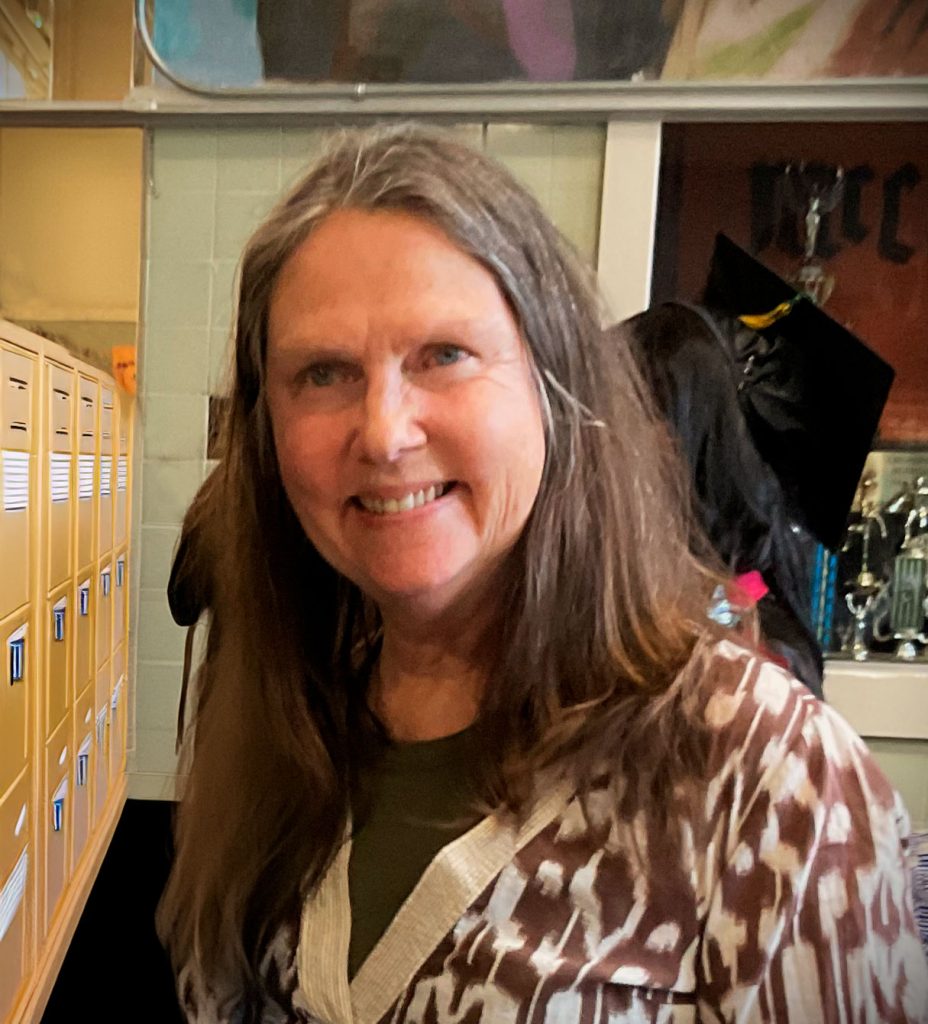Transition liaisons support students embarking
on new educational and career journeys

While going back to school as an adult opens new doors, navigating enrollment, choosing courses and juggling classwork—on top of managing work and family—can be overwhelming. That’s why students at Oakland Adult and Career Education turn to people like Maria Einaudi for support.
As a transition liaison for OACE, Einaudi helps students pinpoint their educational and career goals and choose the right classes. She also assists with enrollment and job training programs, as well as identifying any available community resources.
“I meet with students and help them enroll in college classes, start job training programs, and get connected to housing, immigration or other relevant resources they might need,” she says. “I’m always educating myself as I go along about all the different eligibility requirements and what’s needed.”
“I appreciated that adult schools were supporting learners from special populations, supporting low-income, disabled, and underrepresented parts of our population with obtaining basic skills.”
Maria Einaudi, Transition Specialist, Oakland Adult and Career Education
With many first-generation immigrant students, the school offers English as a second language (ESL) courses and ESL family literacy classes for parents of young children. Moreover, Einaudi says a growing number of adults are accessing high school equivalency classes and OACE’s job training programs in order to enter careers like plumbing, HVAC (heating, ventilation, and air conditioning) and electrical fields.
As an OACE transition liaison, Einaudi sits down with students individually to ask about their objectives and helps them map out their next move, whether it’s sharing information with them about an ESL class, helping with a resume, exploring jobs, or helping them transfer to a community college or a job-training program. In fact, OACE partners with agencies and nonprofits that provide short-term training programs in areas such as banking, healthcare, and the trade professions.
Einaudi says she came to work at OACE in 2007 teaching students with disabilities. In 2018, she made the switch to transition liaison.
“I appreciated that adult schools were supporting learners from special populations, supporting low-income, disabled, and underrepresented parts of our population with obtaining basic skills,” she says. “It’s only right that we continue educational opportunities for those who, for so many different reasons, need it beyond 12th grade or never had access to it to begin with, or need it just to skill up for employment.”
Whether it is helping a student choose between ESL options or advising them on careers, Einaudi says she enjoys working with adult students because they usually know what they want.
“And, when I see people get what they want, it makes the job satisfying.”
For more information on all the Oakland Adult and Career Education programs, visit https://www.ousd.org/adult-and-career-education
Written by Gail Allyn Short
| Regions | Classes & Topics |
|---|---|
| Bay Area California | Variety of Classes |